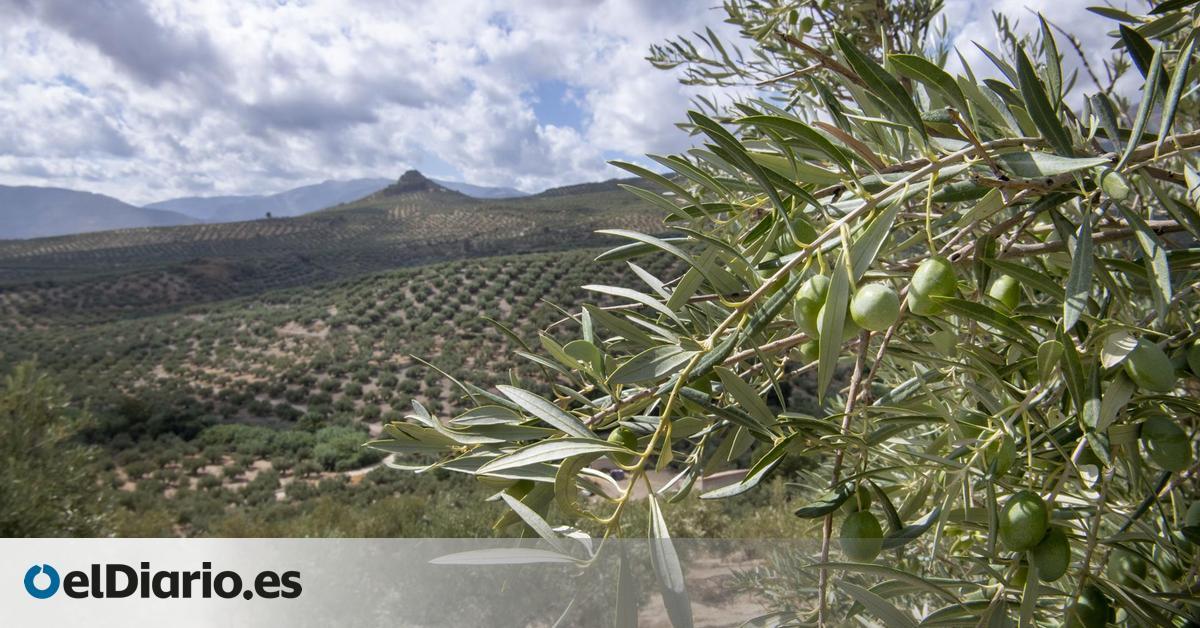
This summer in the northern hemisphere has brought developed countries face to face with the reality of the climate emergency and its consequences. The alarming heat in the oceans, the suffocating temperatures in the countryside, on the beaches and in the cities, the fires and the melting ice are already having a profound impact on agriculture, energy or tourism, and threaten to destroy 1 in every 10 euros of the world economy in the long term.
Extreme heat seizes the waters of the Mediterranean and the Atlantic: “It’s outrageous”
Further
Climate change has already become, in fact, one of the biggest challenges for the economy, if not the most important, both globally and locally.
Some recent episodes are real alarm signals. For example, the dystopian image of the last few days of hundreds and hundreds of dead clams and razors on the beach of A Canteira de A Illa Arousa, in Pontevedra. A massacre that has been the result of the combination of higher temperatures and forcing shellfish campaigns in the summer to cater to mass tourism.
And the skyrocketing prices of extra virgin olive oil should also serve as a warning. Liquid ‘gold’, crucial for the economy of Spain, and specifically of Andalusia (our country is the world’s largest producer), has not stopped becoming more expensive for months, with a 25% rise in the final price of the brand white only from June; the oil mills warn of shortages and lament another bad season due to the drought. And from the sector they warn: the rise in prices is going long and they fear “a disaster” in the olive grove unless a rainy autumn comes.
It is another warning light in a sector that, together with tourism, is one of the economic engines of Spain, in terms of job creation and the structuring of the territory. Here, however, there are differences because these two activities are experiencing very different times: after the severe blow of the pandemic, hotel companies foresee record occupancies, although there are usually cancellations when there are heat waves, while agriculture and livestock drag months of productions down.
The Bank of Spain included a worrying forecast (“exposed to great uncertainty”) from the Network of central banks and supervisors to green the financial system (NGFS), in the annual report published in 2022. With Under current policies, about 10% of world economic activity will vanish by the end of the century, according to this projection. That is, more poverty in general. And, without much greater redistribution of wealth, more inequality.
“In this central scenario, no more measures are adopted than those currently in force, which produces an increase in global temperatures of between 2.5ºC and 4ºC in 2100 compared to pre-industrial levels”, details the monetary institution. In this assumption, the impact of climate change on global GDP in 2050 would be around 3%.
In a situation of “delayed” energy transition, in which annual greenhouse gas emissions begin to decrease later, after 2030, but with an acceleration since that year in policies to limit global warming, the damage in the short term it would extend to destroying 5% of world activity. But the effect would be more limited over a longer horizon than in the first assumption, as can be seen in the graph.
Finally, the blow would be much more moderate in a context in which measures are adopted that reduce net emissions to zero by 2050, while the increase in global temperature remains below 1.5ºC in 2100 compared to the previous ones. pre-industrial levels, according to the Bank of Spain.
The threat of droughts for Spain
The ‘rating’ agency Scope has made its own calculation of the impact of droughts on different European economies in the face of 2050. Its conclusions are that they would erase almost 6% of Spain’s GDP, and a couple of points more than Italy’s.
“The consecutive heat waves in Europe, together with the changes in the precipitation regime, are already exposing several regions (especially the south) to a meteorological drought. This is causing serious damage to economic, human and natural systems”, lament the Scope experts.
“At the sectoral level, agriculture is the activity with the greatest exposure to the risk of drought in the EU, with accumulated losses equivalent to 9.8% of its income,” they continue from this agency.
“These serious consequences could mean additional economic challenges and financial burdens derived from debt-financed public spending to deal with drought risks, which would raise their debt/GDP ratios, increasing the cost of refinancing in the long term,” they add.
Another affected sector is construction “and in general all those activities most exposed to outside temperatures. The increasingly frequent heat waves reduce the productivity of workers, decrease the intensity of the work carried out and their cognitive performance”, observe, for their part, J. Julián Cubero and Lucía Martín, economists at BBVA Research, in a recent article .
“This type of impact is transmitted throughout the production chain until it affects, for example, foreign trade, with less quantity and quality of exports (for example, from activities linked to tourism) or reducing the demand for imports due to impoverishment. derived from global warming”, continue these two analysts.
international coordination
As the Bank of Spain warns, “continuing progress in the fight against global warming will require strengthening international coordination in this area, taking into account the specific development conditions of each country.”
Thus, for example, the empirical evidence points to the fact that, for countries at an early stage of their development, there is a positive relationship between economic growth and the increase in greenhouse gas emissions, a relationship that is inverted once the a high level of per capita income is reached”, highlights the institution.
Robert Pindyck, an expert at the business school of the Massachusetts Institute of Technology (MIT, in Cambridge), urged in a recent article in the Financial Times to be “realistic” because “it seems unlikely that we can avoid 2°C or even 3°C warming, partly because we are not doing much to reduce emissions. Europe and the US have made reductions and have put forward policies to do more. But what matters is global emissions, and most other countries are doing very little.”
“We must reduce emissions, but we must do it in the most efficient way possible. ‘Efficiently’ means at the lowest cost, and study after study has shown that the cheapest way to reduce emissions is by imposing a carbon tax”, says this expert.
The case of Spain
In Spain, in 2021, the Ministry for the Ecological Transition pointed out 73 possible threats that climate change implies, among which it cited as the most urgent the risk of flooding, greater desertification, lower agricultural production, shortages of water or energy, the disappearance of snow tourism or damage to infrastructure due to extreme weather events.
The Spanish banking supervisor admitted in that report published in 2022 of the “enormous depth” of the “transformational challenge facing our economy.” In Spain, greenhouse gas emissions peaked in 2008, approximately 18 years after they did in the EU as a whole. They have been reduced, on average, by 4.1% per year, reaching 13% below 1990 levels in 2020.
According to the institution, “the main factor behind this fall in emissions would have been the increase in the weight of renewables in the production of electricity, although the change in the sectoral structure of the economy, the specialization in less intensive products in energy and the decrease in household emissions would also have contributed to said aggregate reduction”.
Now, to meet the targets set in 2030, greenhouse gas emissions from the Spanish economy should decrease by an annual average of 1.5% in the coming years. At the end of 2021, the Bank of Spain itself carried out a survey to gauge the opinion of Spanish companies on the implications that climate change and the transition towards a more sustainable economy would have for them.
The survey showed a relatively optimistic perception of Spanish companies regarding the direct impact of the climate challenge on their activity, although with notable differences depending on the sector of activity. Specifically, around 35% of the companies expected the impact of this challenge on their activity to be very negative (just under 10% of the companies) or moderately negative (25%).
“It was observed that companies that operate in sectors with a higher intensity of greenhouse gas emissions —such as transportation, agriculture, and manufacturing— tend to expect a greater negative impact on their activity associated with climate change,” according to the monetary institution.
———————
How to stop the lies
The 23J campaign has made clear the tremendous importance of the free press, which depends on its readers and owes nothing to anyone else. The vast majority of the big media are owned by banks, funds and large communication groups. The vast majority of them have whitewashed the ultras and are under the control of the agenda set by the right.
That is why we ask for your support. We need to grow. Hire more journalists. Reinforce our local editions against the lies of the local and regional governments of the extreme right. Sign up more investigative reporters. We need to reach more people, build a bigger newspaper, capable of countering the brutal wave of conservative propaganda that we are going to face. And that will leave small what we have experienced in this dirty electoral campaign.
If you care about the future of this country, support us. Today we need you more than ever because our work is more necessary than ever. Become a member, become a member, of elDiario.es.
Source: www.eldiario.es

